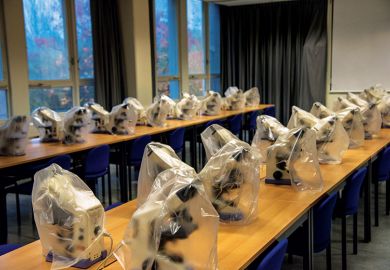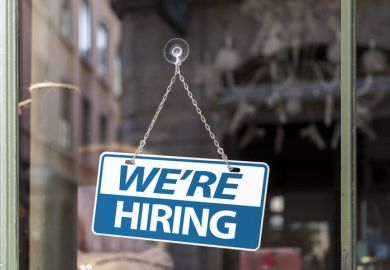Nearly a third of US college graduates return home to live with their parents, a long-term analysis has found, in what its lead author said was indicative of the poor guidance students receive about the earnings potential of different majors.
Some 31 per cent of students who earned a bachelor’s degree between 2011 and 2013 moved home within a few years, according to a research team led by Stefania Albanesi, a professor of economics at the University of Pittsburgh.
That is up from 25 per cent among students who graduated between 1994 and 1996, Professor Albanesi’s team said in a paper posted ahead of peer review by the National Bureau of Economic Research.
The situation appears to reflect a range of economic and educational stresses facing students and workers, Professor Albanesi said in an interview. But a leading factor, she said, appeared to be the widening earnings gap between the fields where a university degree produces a significant gain in income over a high school diploma, and the fields where it does not.
This is pushing many university graduates in the latter category to take jobs that do not require a degree because the labour market value of their academic credential has fallen so low, Professor Albanesi said. Many graduates consequently find themselves with the bill for the cost of earning a college degree but little if any salary advantage over a high school diploma, she said.
Cases of graduates taking jobs that do not require their degree “explain two-thirds of the rise in unemployment and co-residence between the 2013 and 1996 graduation cohorts”, according to the Albanesi team, whose other members are at the University of Pittsburgh and the University of Oxford.
As the workplace grows more complicated and service-sector jobs account for a greater share, Professor Albanesi said, universities should be more active in helping their newest students make wise decisions about what majors to study, based on data the institutions already have but too often do not effectively share.
That missing guidance appears to be intentional, Professor Albanesi said. “They have this data internally – they do keep track of their alumni,” she said of US universities. But they are reluctant to share it with their students “because they’re afraid it’s going to make them look bad”, she said.
Professor Albanesi said she chose the measurement of graduates living with parents because it has become a common phenomenon in the personal lives of her own colleagues, and because it helps to encapsulate in a single data point a variety of life stresses facing young adults.
Other studies have suggested similar realities. One last year by the Georgetown University Center on Education and the Workforce showed that 16 per cent of US workers with only a high school diploma, and a quarter of those with some college experience but no degree, earned more money than most people with a bachelor’s degree. Another issued last year by the Bill and Melinda Gates Foundation identified 650 US institutions that were not worth the cost to students.
The quality of US high schools might be an important factor in why so many students make poor choices about college majors, Professor Albanesi said. Her assessment is that US high school students are so starved for interesting courses in topics such as philosophy and history that they get swept away by those fields upon entering university.
“I can understand that somebody who hasn’t had any exposure to that gets to college [and finds] those topics are fascinating,” she said. “I remember when I first started philosophy and history – but I did it in high school because I grew up in Italy – that’s what I wanted to do for the rest of my life. But then by the time I got to choosing college, I was more realistic.”
There are humanities graduates with strong careers, and they are known to be valuable in sectors that include technology and business, Professor Albanesi said. “But it’s just a small pipeline,” she said. “There are some examples that get a lot of press, and so on, but for your average person, that’s not the way.”
Register to continue
Why register?
- Registration is free and only takes a moment
- Once registered, you can read 3 articles a month
- Sign up for our newsletter
Subscribe
Or subscribe for unlimited access to:
- Unlimited access to news, views, insights & reviews
- Digital editions
- Digital access to THE’s university and college rankings analysis
Already registered or a current subscriber? Login








